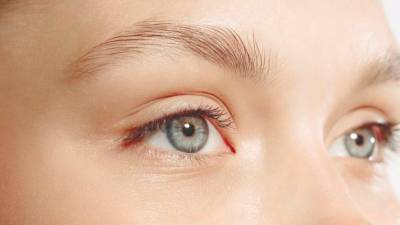Discover effective ways to prevent eyesight diseases and maintain optimal vision. Follow simple habits and tips for better eye health.
OUR eyes are priceless windows to the world. Maintaining good eye health is crucial to enjoying a high quality of life. Therefore, taking good care of your eyes is vital to ensuring their optimal function for a longer period of time.
Many people experience occasional eye problems and these tend to increase with age. While some issues are minor and temporary, there are serious ones that can lead to lasting damage, including permanent vision loss.
This highlights the significance of proactive eye care. The good news is that the majority of eye problems, even the severe ones, can be prevented. Below is a list of preventative guidelines and measures that can be taken to improve eyesight.
Understanding eye health
The eyes are intricate organs and its well-being is susceptible to a multitude of factors, encompassing genetics, lifestyle choices and environmental elements. Grasping the mechanisms through which these factors impact eye health serves as the initial step in implementing preventative actions.
Genetics play a fundamental role in determining eye health, as certain conditions and predispositions can be inherited. Lifestyle choices, such as diet, exercise and habits like smoking, significantly impact the eyes.
For instance, a nutritious diet rich in specific vitamins and minerals can bolster eye health, while smoking can exacerbate eye-related issues. Moreover, environmental elements, such as exposure to sunlight and pollutants, can also influence eye health.
Prolonged exposure to harmful UV rays can contribute to conditions like cataracts and age-related macular degeneration. Understanding the interplay of these factors and their effects on the eyes equips individuals to make informed choices, fostering a proactive approach towards maintaining good eye health.
1. A balanced diet
Good eye health starts with the food on your plate. Nutrients like omega-3 fatty acids, lutein, zinc and vitamins C and E might help ward off age-related vision problems like macular degeneration and cataracts.
To obtain these, include in your meals – green leafy vegetables such as spinach, kale and collards. Oily fish like salmon and tuna. Non-meat protein sources like eggs, nuts and beans. Citrus fruits or their juices, like oranges. A balanced diet also aids in maintaining a healthy weight. This reduces the risk of obesity and related diseases such as type
2. Proper screen usage
In our modern era dominated by technology, a significant portion of our day is often spent facing screens, like those on computers, smartphones and tablets.
Adhering to the 20-20-20 rule is crucial to mitigating digital eye strain. This guideline recommends taking a break every 20 minutes to focus on something approximately 20 feet away for a minimum of 20 seconds.
3. Protecting eyes from UV radiation
Selecting the appropriate sunglasses can effectively shield your eyes from the harmful ultraviolet (UV) rays of the sun. Excessive exposure to UV radiation heightens the risk of developing cataracts and experiencing macular degeneration.
Opt for sunglasses that block 99% to 100% of both UVA and UVB rays. Wraparound lenses provide additional protection from the sides, ensuring comprehensive coverage for your eyes. While polarised lenses can diminish glare while driving, they do not necessarily augment the level of protection.
For those who use contact lenses, some types come with built-in UV protection. Nonetheless, wearing sunglasses remains a prudent choice to add an extra layer of protection for your eyes.
4. Quit smoking
There are a number of eye diseases that are associated with smoking. These conditions include cataracts, age-related macular degeneration and damage to the optic nerve. Giving up smoking not only has positive effects on your general health but also makes a major improvement to the health of your eyes.
If you have tried to kick the habit before only to start again, keep at it. The more times you try to quit, the more likely you are to succeed. Ask your doctor for help.
5. Regular eye check-ups
Even infant children need regular eye examinations. It protects your eyesight and enhances your vision. Eye exams can also detect symptomless diseases, such as glaucoma. It is essential to identify them early, when they are easier to treat.
Routine appointments with an optometrist or ophthalmologist are vital, even if your vision is currently problem-free. These experts can identify early indications of eye issues and recommend corrective actions to halt potential deterioration.









